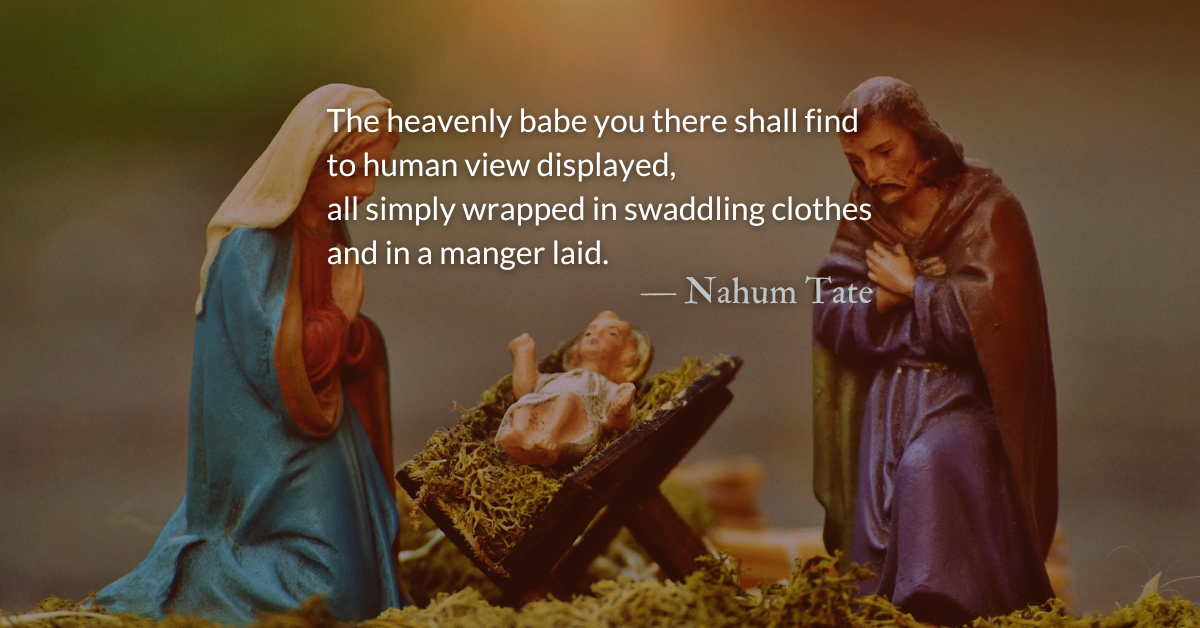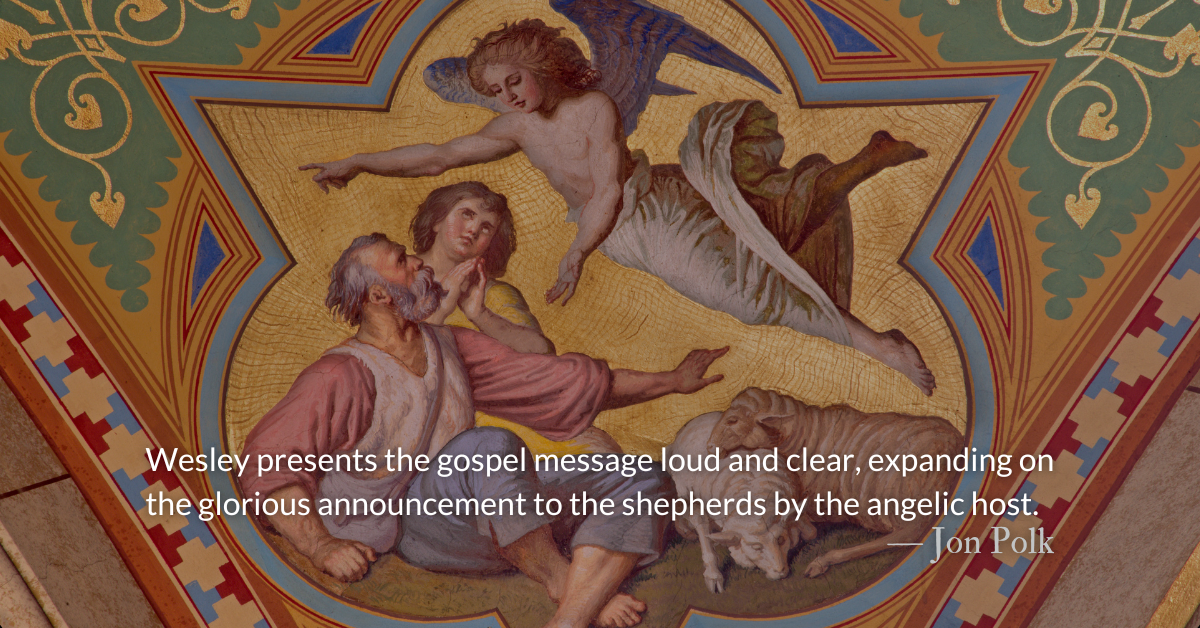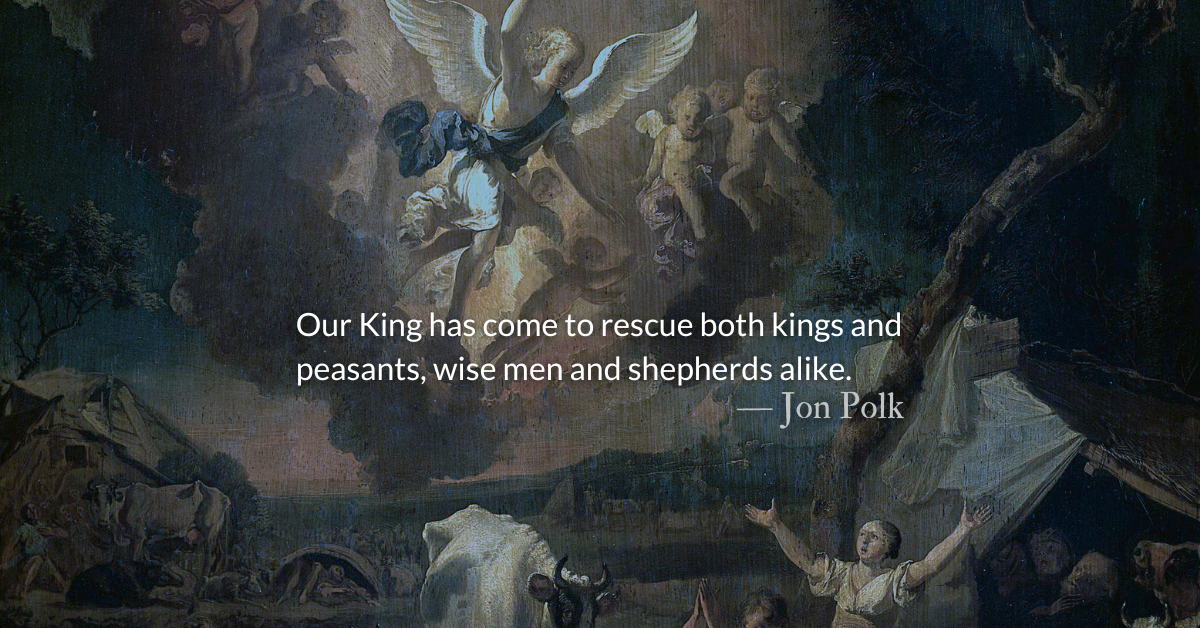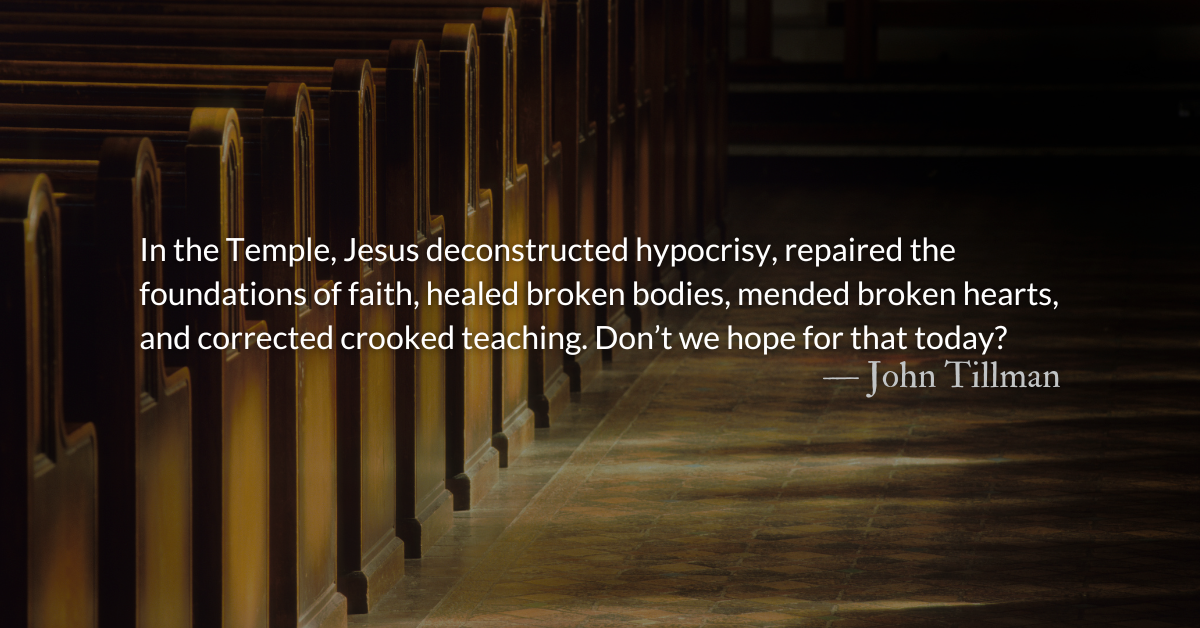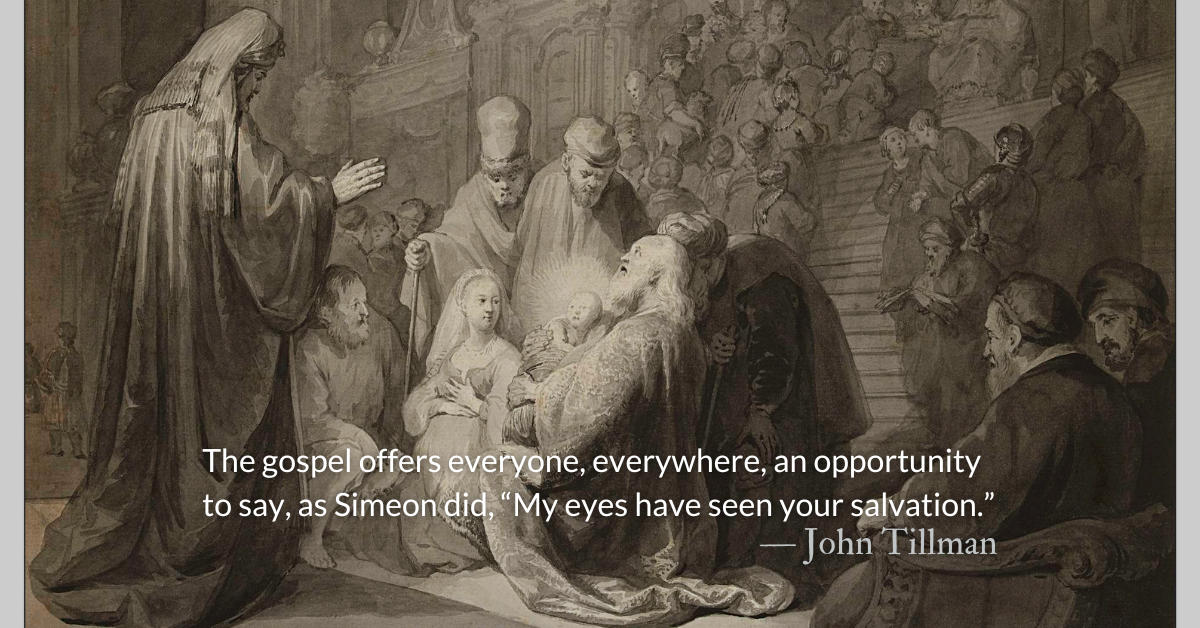Scripture Focus: Psalm 132:10-12
10 For the sake of your servant David,
do not reject your anointed one.
11 The Lord swore an oath to David,
a sure oath he will not revoke:
“One of your own descendants
I will place on your throne.
12 If your sons keep my covenant
and the statutes I teach them,
then their sons will sit
on your throne for ever and ever.”
Luke 2:20
20 The shepherds returned, glorifying and praising God for all the things they had heard and seen, which were just as they had been told.
Reflection: While Shepherds Watched Their Flocks — Carols of Advent Joy
By Jon Polk
While Shepherds Watched Their Flocks may hold the distinction as the only Christmas carol written by a British Poet Laureate.
Nahum Tate was born in Dublin, Ireland. Tate was the son of an Irish pastor, Faithful Teate, and both of his grandfathers were also ministers. Despite a history of clergy in his family, Nahum instead pursued a literary career.
Tate attended Trinity College, Dublin, and graduated in 1672. Within a few years, he moved to London and began making a living as a writer.
Tate wrote and published a collection of poems but primarily focused his writing on stage plays. After writing a few original plays, he turned his attention to creating adaptations of Shakespeare’s works. His rewrite of the tragedy, King Lear, concluded with a happy ending and was so successful that it became the preferred performance version for over a hundred years.
Due to his significant contributions to the arts, Nahum Tate was named Poet Laureate of England in 1692, a title he held for twenty-two years.
Prior to 1700, church music in English consisted exclusively of Psalms. In 1696, Tate collaborated with Nicholas Brady to update the traditional settings of the Psalter, producing the New Version of the Psalms of David.
Around the same time, Tate wrote the lyrics for While Shepherds Watched Their Flocks, a Christmas carol based on the angel’s proclamation in Luke 2.
While shepherds watched their flocks by night,
all seated on the ground,
an angel of the Lord came down,
and glory shone around.
When Tate and Brady published a Supplement to the New Version of the Psalms in 1700, they included sixteen hymns not based on Psalm texts. While Shepherds Watched was the only Christmas hymn in the collection, thereby making it officially the first Christmas carol approved for usage in the Anglican Church. Prior to that, most carols had roots in folk music and were considered too secular for church services.
The fact that the lyrics were drawn directly from the scriptural account in Luke worked in the hymn’s favor and helped it gain acceptance for congregational singing.
The heavenly babe you there shall find
to human view displayed,
all simply wrapped in swaddling clothes
and in a manger laid.
Tate’s carol is one of the first known hymnic descriptions of this glorious event. Of the sixteen new hymns in the Supplement, it is the only one still sung today. It is a blessed and simple reminder of the moment when the divine birth announcement was delivered quite unexpectedly to humble peasants.
All glory be to God on high,
and to the earth be peace;
to those on whom his favor rests
goodwill shall never cease.
Listen: While Shepherds Watched Their Flocks by Andrew Peterson
Read: Lyrics from Hymnary.org
Divine Hours Prayer: The Refrain for the Morning Lessons
Truly, his salvation is very near to those who fear him, that his glory may dwell in our land. — Psalm 85.9
– From The Divine Hours: Prayers for Summertime by Phyllis Tickle.
Today’s Readings
2 Chronicles 25 (Listen 5:12)
Psalms 132-134 (Listen 2:42)
Read more about Pause To Read
The 1st full episode of our new podcast, Pause to Read, is out tomorrow morning. Please subscribe, share the episodes, and give a rating/review to help others find the show.
Read more about Supporting Our Work
People across the world read The Park Forum for free because of faithful donors of both large and small amounts. Help us thank them with a message or become a donor yourself.

